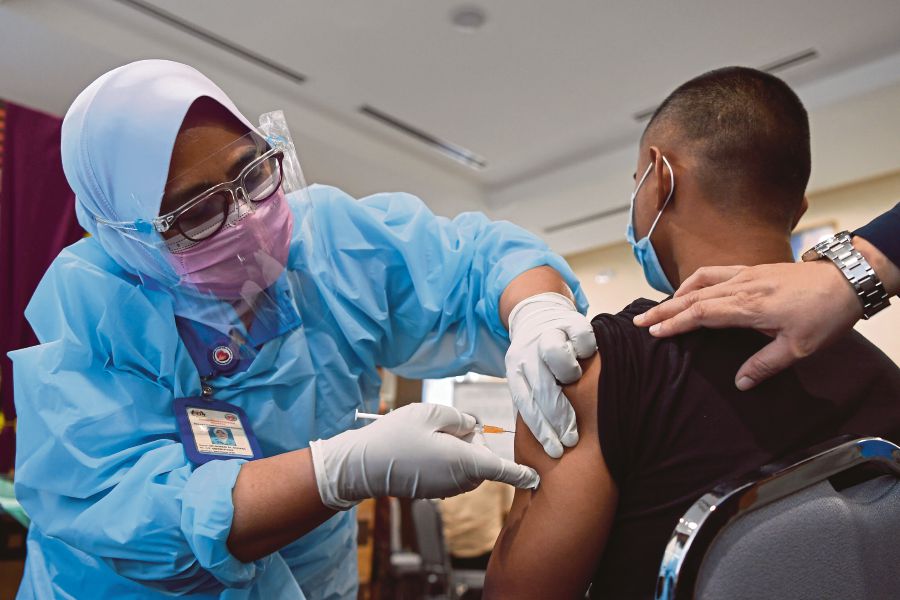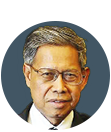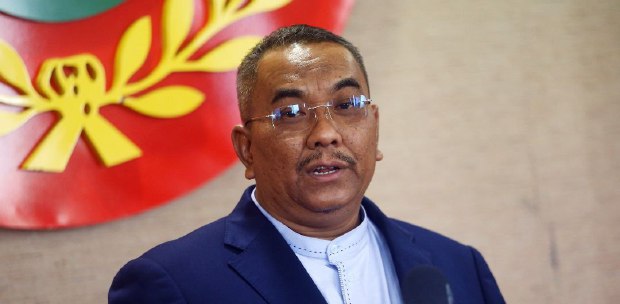Monday, March 1, was the first anniversary of Tan Sri Muhyiddin Yassin's administration. The Perikatan Nasional government has by no means been a perfect government.
This sentiment may be prevalent in some urban centres. However, there are many success stories that should be celebrated by Malaysians. Three stand out — the gel between the cabinet and civil servants, the unity in the cabinet, and the successful economic and health measures the government took during the Covid-19 crisis.
Having been in the cabinet for a few terms now, I can say that the most important aspect of an effective government is the close cooperation between ministers and civil servants.
The close working relationship between Muhyiddin, the chief secretary to the government and departments heads, as well as between ministers and their secretaries-general, is vital to the smooth running of Malaysia's government.
Key to the strong partnerships between politicians and public servants is the extensive experience of many ministers at federal and state levels. Due to our previous stints in the government, many ministers have a wide range of practical knowledge, as well as exposure and understanding of the way civil servants operate.
Civil servants are professional individuals, who are always prepared to be guided by members of the administration. In my experience, most civil servants operate on autopilot, instinctively responding to the demands of the rakyat. Of course, there will always be bad apples, but the overwhelming majority are performing well.
As politicians, we cannot expect them to do the impossible. We have to respect the rules and regulations of the civil service. Mutual respect and trust are important in delivering quality public goods and services.
Members of the cabinet come from various parties — Parti Pribumi Bersatu Malaysia, Umno, Pas, Gabungan Parti Sarawak, MCA, MIC and Parti Bersatu Sabah. There are Muslims, Christians, a Buddhist and a Hindu in the cabinet. Ministers hail from almost every state. Although the cabinet is less ethnically representative than we would like, the interests of all communities are always taken into consideration before any major decision is made.
Indeed, Datuk Seri Dr Wee Ka Siong and Datuk Seri M. Saravanan have consistently spoken up in cabinet meetings, not only about their portfolios, but also for the interests of the Chinese and Indian communities.
Datuk Seri Fadillah Yusof, Datuk Seri Maximus Johnity Ongkili and our other Sabah and Sarawak colleagues also ensure that the voices of our countrymen in the two states are paid due consideration.
In recent months, there has been a lot of political noise, with media statements and new controversies popping up weekly. None of that drama is seen in our cabinet, where every minister is focused on delivering the government's agenda to protect the lives and livelihoods of all Malaysians.
A good number of Malaysians assume that the noises outside spill into cabinet meetings. This is not true. In the cabinet, we work closely as one team, and politics is left strictly outside the meeting room. The Covid-19 pandemic has been one of the most devastating events in modern history. No country has been spared.
In Malaysia, at the beginning of the outbreak, there were some forecasts of unemployment reaching one million, or even 2.5 million, people. However, according to the Statistics Department, we reached a peak of 826,000 unemployed people in May.
Unemployment has since dropped to 773,000 at the end of last year. Although the nation's revenue came down sharply by about 15 per cent last year, the cabinet decided to increase the deficit-to-GDP ratio to protect jobs, keep food on the table and ensure that the requirements of the Health Ministry are well provided for.
The various stimulus packages, valued at RM320 billion, were rolled out by the government, RM55 billion of which was direct fiscal injection from the government's coffers.
On the health side, the various Movement Control Orders, as well as the tireless work of the Health Ministry, have ensured that the number of people infected by Covid-19 remained relatively low, compared even with some of the most developed countries in the world.
If all goes according to plan, vaccination will be rolled out like clockwork over a one-year period, by the end of which we will hopefully have seen the last few instances of Covid-19, InsyaAllah.
I know that many Malaysians and foreign investors are worried about the state of Malaysian politics. All of us want stability. But, an election, which could serve to provide political stability, can occur only after we have controlled the pandemic.
On Monday, during an interview with the media, the prime minister is quoted as saying that "the important thing is that we settle (Covid-19) first. When we are done with it, I don't want to wait even a day (to hold elections)". So until then, let us put our differences aside, focus on the task at hand, and reduce the political temperature.
Of late, Malaysia has been too politically divisive. This has to stop. We must instead strive to find consensus on protecting jobs, controlling Covid-19, achieving national unity, preserving the nation's security and strengthening the economy. There will be ample time for politics in the run-up to the next general election.
The writer is the minister in the Prime Minister's Department (Economy)
The views expressed in this article are the author's own and do not necessarily reflect those of the New Straits Times






